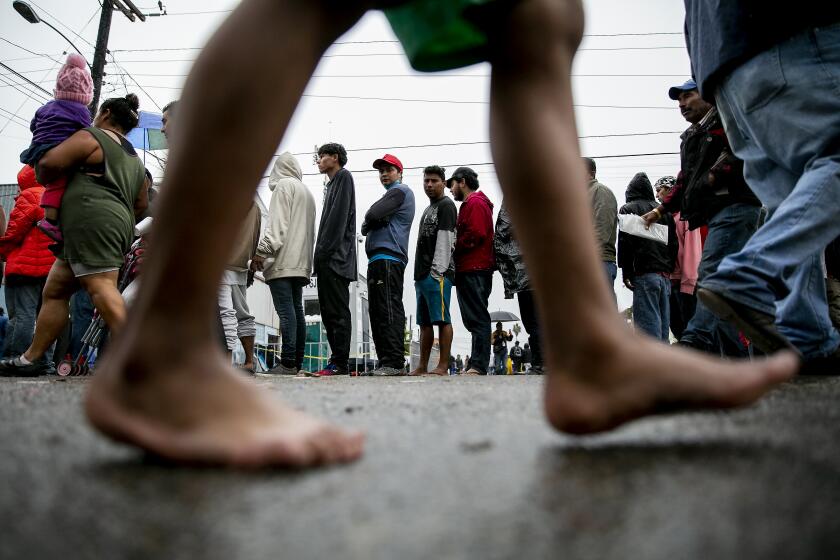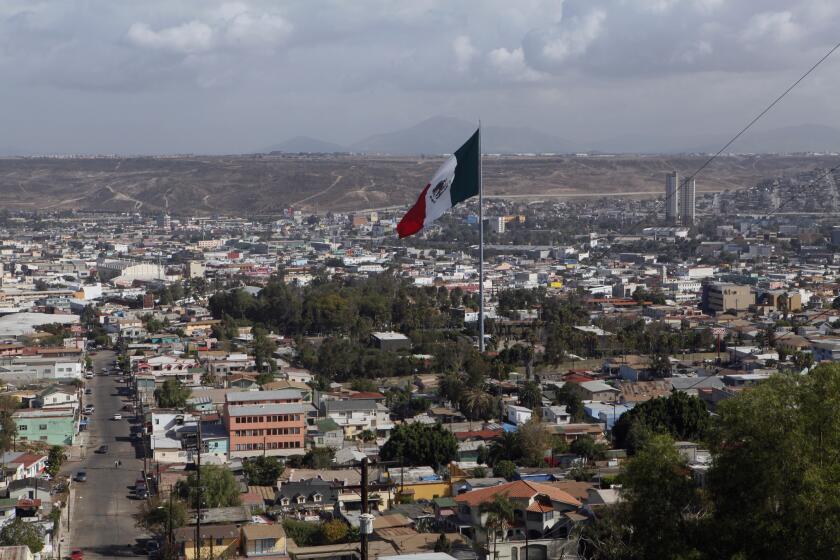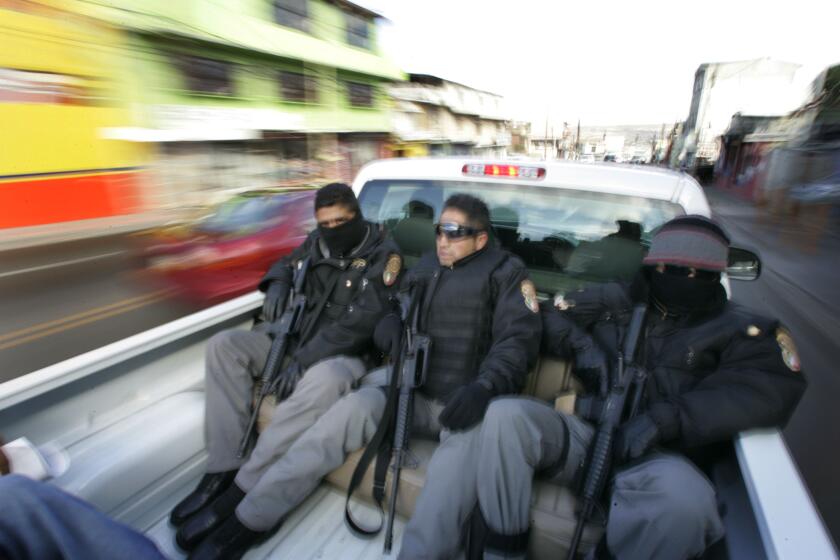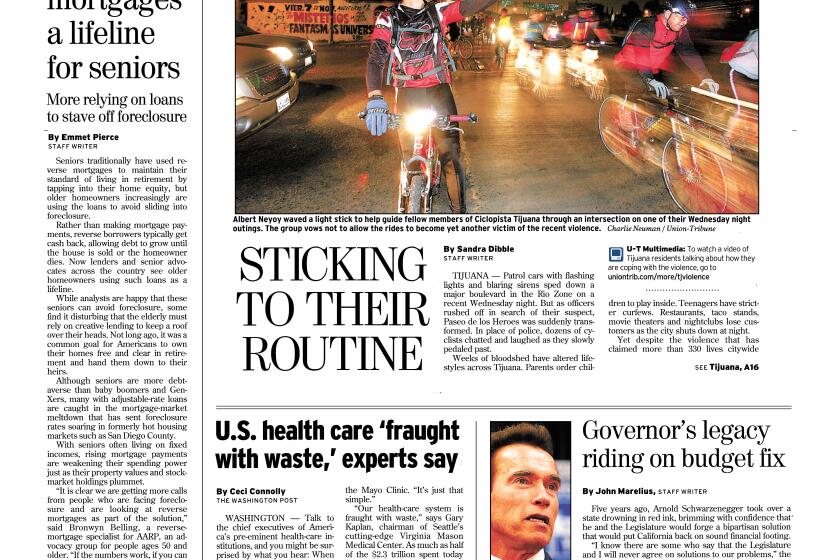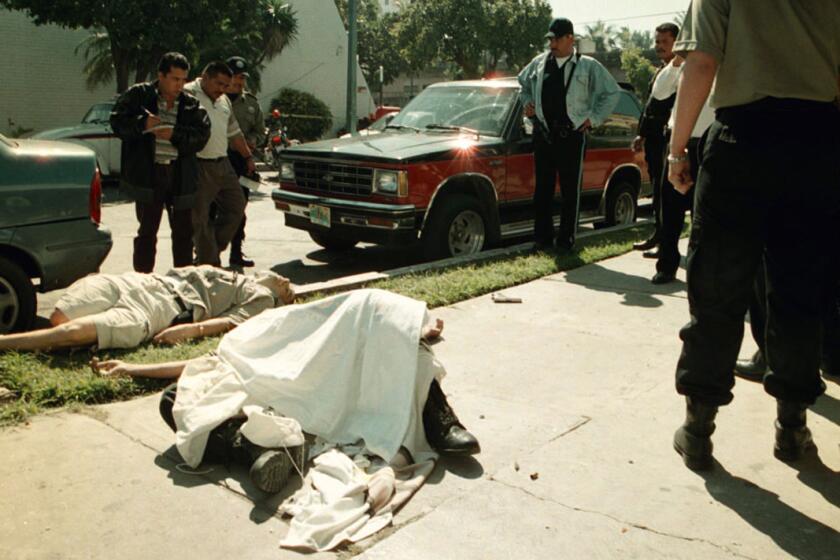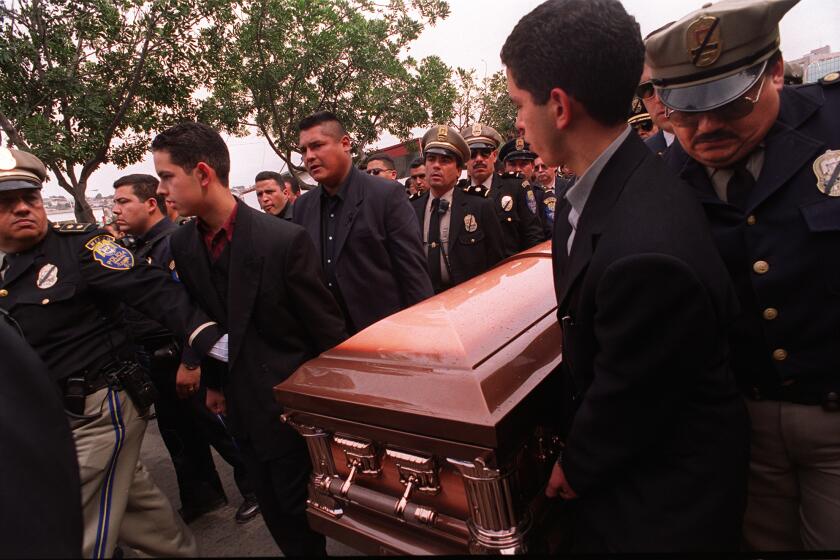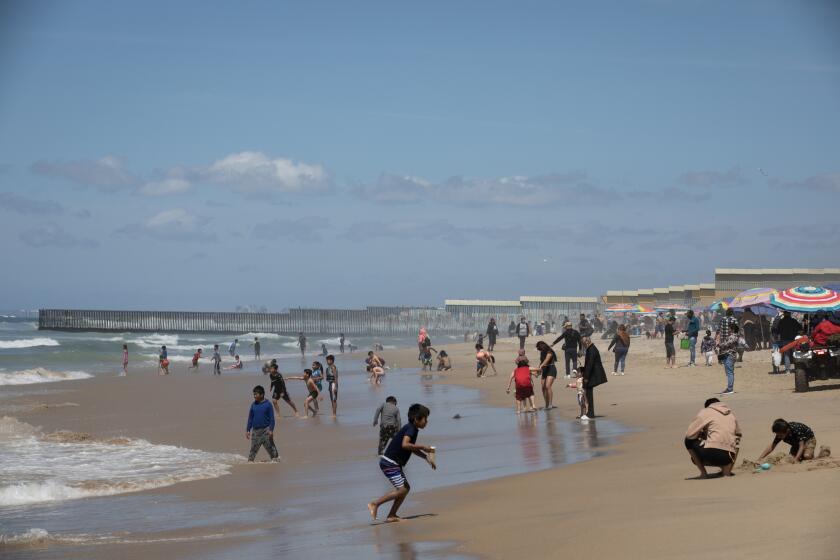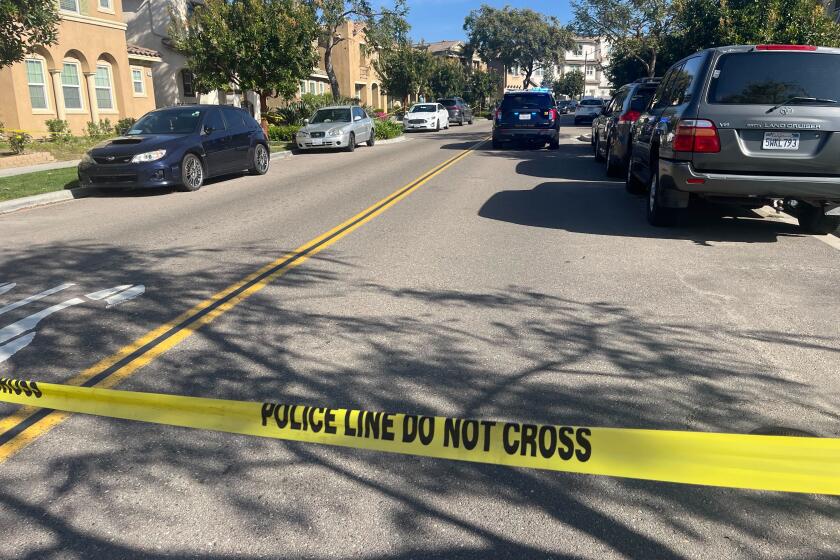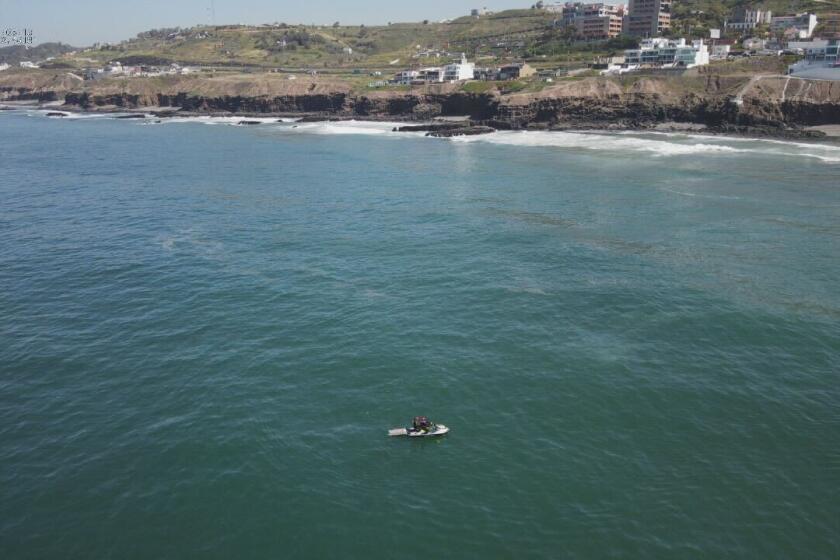Marine veteran hopes for release from TJ prison
Andrew Tahmooressi said he was hoping for a new beginning when he drove from Florida to California in March, with all of his worldly possessions inside his Ford F-150 truck. The 25-year-old Marine reservist had dropped out of college, broken up with his girlfriend, and was uncertain of his future.
But a trip to Mexico certainly was not part of his plan, he said.
Tahmooressi is being held in a Tijuana prison on federal weapons charges — all the result, he said, of missing the last exit on Interstate 5 and accidentally crossing the border with three firearms.
“I never meant to be in Mexico,” Tahmooressi said in an interview Saturday afternoon at the La Mesa State Penitentiary. “I had no bad intentions, I had no intentions of smuggling my weapons, I had no intentions of selling them or anything of the sort.”
The charges include possession of two firearms meant for exclusive use of the Mexican military; bail is not permitted. If convicted, he faces six to 21 years in a Mexican prison, said his Tijuana attorneys.
On Saturday, he remained under guard at the prison infirmary after attempting an escape and later cutting his throat with a piece of broken light bulb. He is no longer considered a risk to himself and others, and is no longer cuffed to the bed with his arms and legs, nor being given medication.
Dressed in a gray inmate’s uniform, he was soft-spoken as he told his story in a small visiting room off the prison yard, in the presence of an armed guard.
“He’s looking well, much more calm now,” Jesus Hector Grijalva Tapia, head of Baja California’s penitentiary system, said Saturday. “A Christian pastor has been coming to see him, and that has been very important.”
Dozens of U.S. citizens are arrested each month for unintentionally violating Mexico’s strict weapons laws, according to a warning by the U.S. State Department. “Claiming not to know about the law will not get you leniency from a police officer or the judicial system,” a statement reads.
Tahmooressi’s attorneys, Alejandro Estrada and Alejandro Osuna, said in an email that their client’s defense strategy will be “the truth.”
“We believe our client’s version that he mistakenly drove into Mexico,” they wrote. Mexico’s federal criminal code provides that absence of intent “is an exception to the application of a penalty. Sgt. Tahmooressi never intended to ‘possess’ weapons in Mexico.”
The Marine veteran is not the first to claim he drove into Mexico mistakenly with weapons.
In 1999, a Camp Pendleton Marine was detained for two weeks in Tijuana after driving into the country with firearms. The Marine claimed he did so by mistake, and a federal judge ordered his release after the Mexican Attorney General asked that all charges be dropped.
Tahmooressi’s attorneys said the case against their client could be dropped if the Mexican Attorney General’s Office in Mexico City requests dismissal. The judge could also dismiss the case before sentencing if there has been a gross violation of due process, they said.
“Particularly if you are not familiar with the area, you can end up driving into Mexico once you have passed the ‘point of no return’ in San Ysidro,” the attorneys said. “Clearly, all would benefit from having clearer signs and another way to get back into the U.S.” The attorneys urged that “some mechanism of immediate cooperation should be put in place to allow U.S. citizens a way back from Mexican Customs to U.S. Customs officers and vice versa.”
Tahmooressi served four years in the Marines, including two tours in Afghanistan, where he was a machine-gunner and became a section leader in charge of 15 Marines. He had been promoted to sergeant by the time he was discharged honorably in November 2012, he said.
Tahmooressi’s arrest in Mexico came less than two weeks after arriving in San Diego from Daytona Beach, where he had most recently been living. He had abandoned studies to be a pilot, then a mechanical engineer, and had recently broken up with his girlfriend. He had driven across the country with everything he owned, including a motorcycle, bicycle and three firearms: a 12-gauge shotgun, a .45 caliber pistol, and an AR-15, all registered.
Friends from his Marine Corps days were helping him find his way in San Diego. Tahmooressi said he had been depressed and sought help at the U.S. Department of Veterans Affairs hospital in La Jolla, where a doctor diagnosed him for post-traumatic stress disorder. On the night of his arrest, March 31, he was driving to meet friends to eat Mexican food in San Ysidro, he said.
“I was going to call them after I drove off the exit, but I never got off the exit, I blew right past it,” he said. “I wasn’t paying attention, thinking I had way farther to go. I ended up in Mexico with no way to turn around.”
At Tijuana’s El Chaparral Port of Entry, he tried to stop at the automatic crossing gates, but was waved through, and then guided to an inspection area. “They say, ‘What have you got back there?’ I said, ‘A whole lot of stuff and three guns.’ I said, ‘I didn’t even mean to be in Mexico.’”
He was soon surrounded by soldiers and civilian law enforcement officers, and taken into federal custody. After three days, he was brought to the La Mesa penitentiary. There, he initially shared a cell with 15 other inmates.
“It seemed like nobody cared for me too much, it didn’t seem like I had any help at all,” he said. Some of his cellmates, who spoke English, “started messing with me, they were trying to make me more scared than I already was.”
One night, as he was let out of the cell to make a phone call, Tahmooressi tried to escape, in full view of guards and fellow inmates. He climbed over a gate, got onto a roof, ran across it, climbed onto another roof. When a guard opened fire, hitting the wall beside him, Tahmooressi said he gave himself up. The incident earned him the nickname “Spiderman.”
Placed alone in an observation cell, he grew increasingly fearful, said Tahmooressi. He grabbed a light bulb and stabbed himself in the neck, creating a small wound. He was taken to Tijuana’s Hospital General and stitched up.
He is not complaining about his treatment, but longs for “my family, my friends, good food.”
Regular visits from an English-speaking chaplain, Luis Benito Juarez, and his Christian faith is helping him pull through, Tahmooressi said. “I put my faith in God, that he will take care of me,” he said. “It was just a big mistake, and I hope that the people here will realize that and that the judge will realize that. I am good now, I am calm, and I am relaxed.”
sandra.dibble@utsandiego.com (619) 293-1716
Get Essential San Diego, weekday mornings
Get top headlines from the Union-Tribune in your inbox weekday mornings, including top news, local, sports, business, entertainment and opinion.
You may occasionally receive promotional content from the San Diego Union-Tribune.

